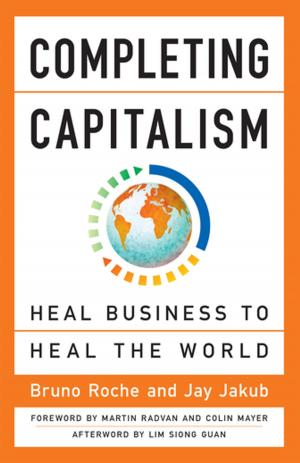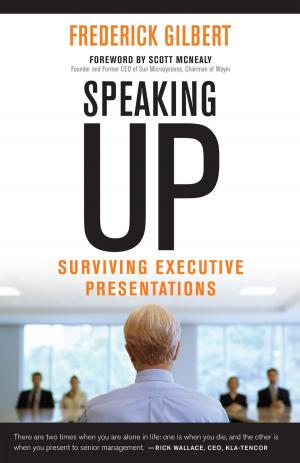Small Change
Why Business Won't Save the World
Nonfiction, Social & Cultural Studies, Social Science, Philanthropy & Charity| Author: | Michael Edwards | ISBN: | 9781605096551 |
| Publisher: | Berrett-Koehler Publishers | Publication: | January 11, 2010 |
| Imprint: | Berrett-Koehler Publishers | Language: | English |
| Author: | Michael Edwards |
| ISBN: | 9781605096551 |
| Publisher: | Berrett-Koehler Publishers |
| Publication: | January 11, 2010 |
| Imprint: | Berrett-Koehler Publishers |
| Language: | English |
A powerful critique of a seemingly beneficial trend that is actually undermining the effectiveness of philanthropy Written by an insider -- a former official with several high-profile nonprofits Co-published with the prominent New York think tank Demos A new movement is afoot that promises to save the world by bringing the magic of the market to philanthropy. Nonprofits should be run like businesses, its adherents say, and businesses can find new sources of revenue by marketing goods and services that benefit society. Dubbed “philanthrocapitalism,” its supporters believe that business principles can and should be the primary drivers of social transformation. What could be wrong with that? Plenty, argues, former Ford Foundation director Michael Edwards. In this hard-hitting, controversial expose he marshals a wealth of evidence to show just how far short the promise of philnthrocapitalism has fallen, and why the whole concept is fundamentally flawed. Some business practices can be beneficial to nonprofits, and it’s definitely a good thing that the for-profit sector is developing a social conscience. Edwards carefully specifies when businesses and business thinking can help. But to really get at the root causes of the systemic problems most nonprofits wrestle with—hunger, poverty, disease, violence—requires a completely different way of operating. Social transformation demands cooperation rather than competition, collective action more than individual effort, and values patient, long-term support for solutions over short-term results. Philanthrocapitalism concentrates power in the hands of a few major players, mirroring the very inequities civil organizations should be trying to ameliorate. With a vested interest in the status quo it shies away from fundamental change. At most all it can promise is valuable but limited advances: small change. Ultimately, Edwards argues that the use of business thinking can and does corrupt civil society. It’s time to differentiate the two and re-assert the independence of global citizen action.
A powerful critique of a seemingly beneficial trend that is actually undermining the effectiveness of philanthropy Written by an insider -- a former official with several high-profile nonprofits Co-published with the prominent New York think tank Demos A new movement is afoot that promises to save the world by bringing the magic of the market to philanthropy. Nonprofits should be run like businesses, its adherents say, and businesses can find new sources of revenue by marketing goods and services that benefit society. Dubbed “philanthrocapitalism,” its supporters believe that business principles can and should be the primary drivers of social transformation. What could be wrong with that? Plenty, argues, former Ford Foundation director Michael Edwards. In this hard-hitting, controversial expose he marshals a wealth of evidence to show just how far short the promise of philnthrocapitalism has fallen, and why the whole concept is fundamentally flawed. Some business practices can be beneficial to nonprofits, and it’s definitely a good thing that the for-profit sector is developing a social conscience. Edwards carefully specifies when businesses and business thinking can help. But to really get at the root causes of the systemic problems most nonprofits wrestle with—hunger, poverty, disease, violence—requires a completely different way of operating. Social transformation demands cooperation rather than competition, collective action more than individual effort, and values patient, long-term support for solutions over short-term results. Philanthrocapitalism concentrates power in the hands of a few major players, mirroring the very inequities civil organizations should be trying to ameliorate. With a vested interest in the status quo it shies away from fundamental change. At most all it can promise is valuable but limited advances: small change. Ultimately, Edwards argues that the use of business thinking can and does corrupt civil society. It’s time to differentiate the two and re-assert the independence of global citizen action.















